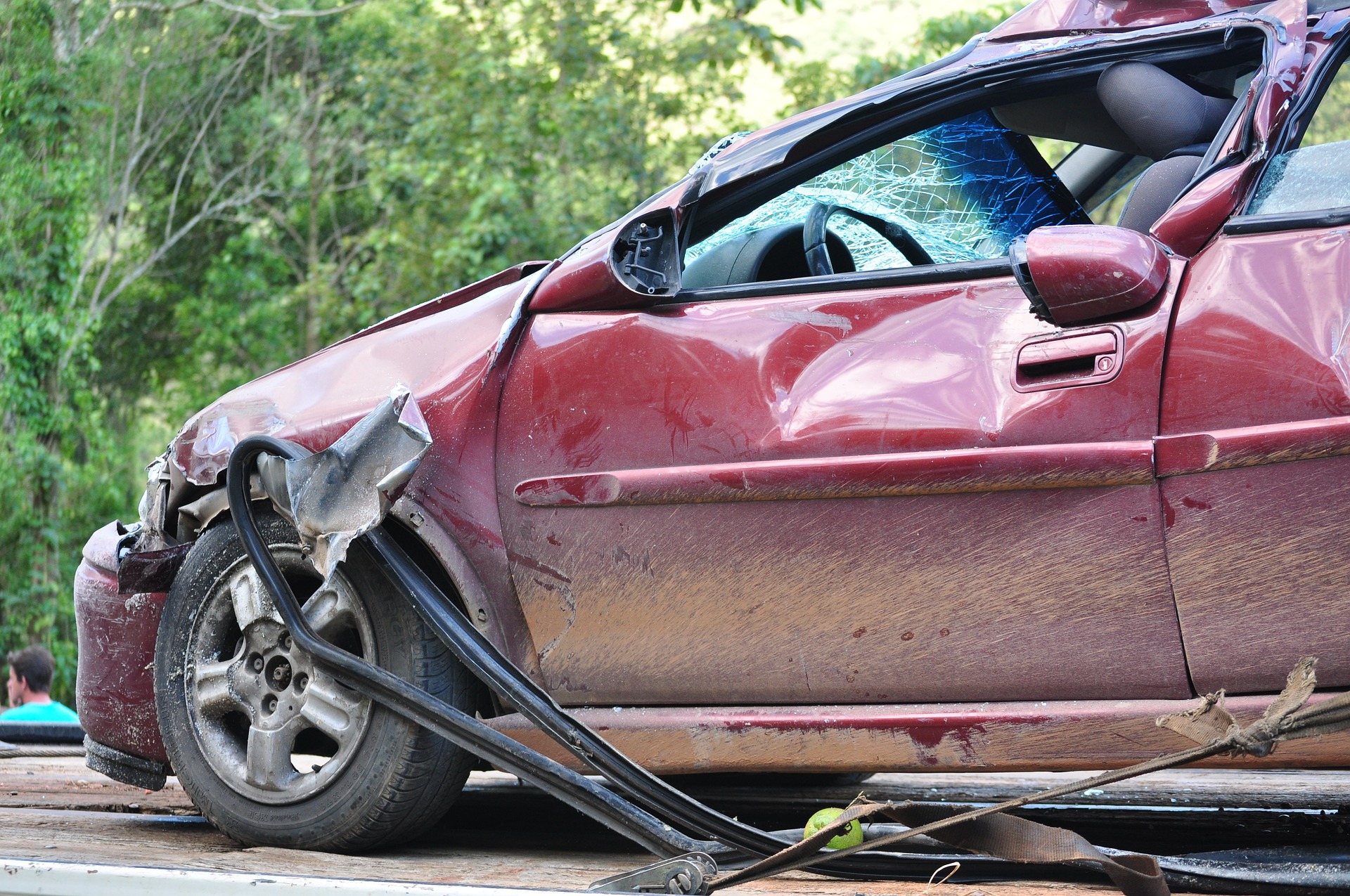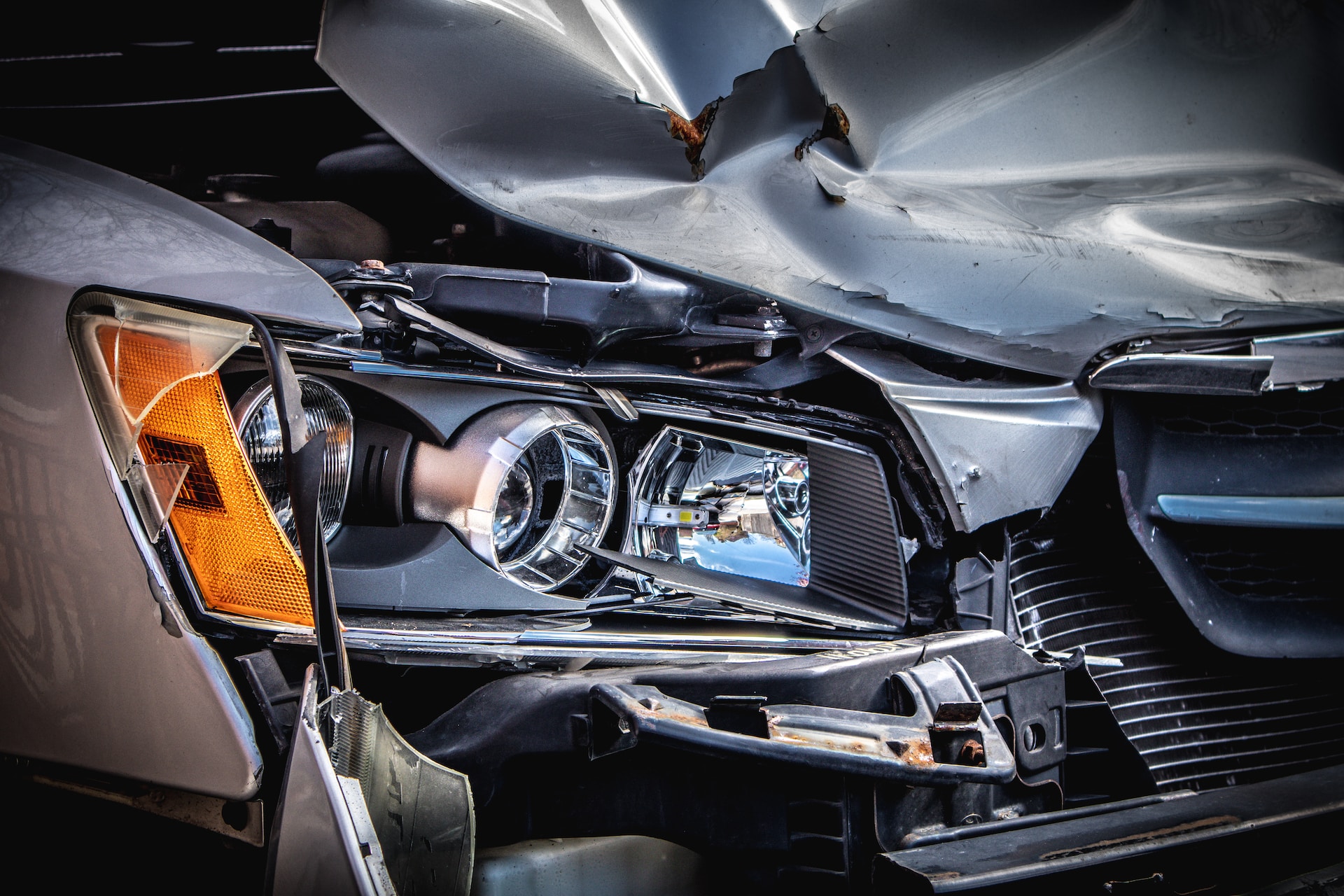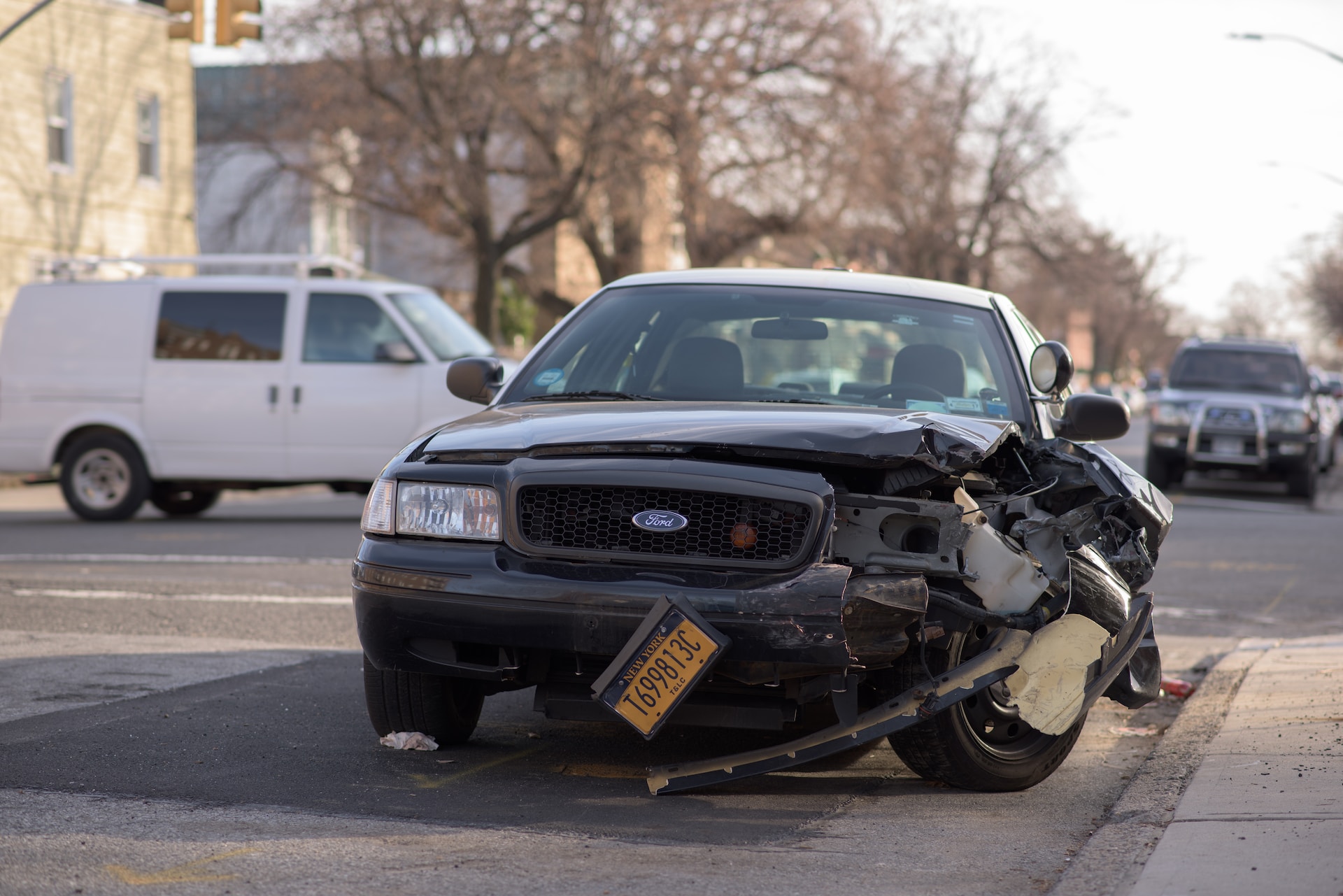If you’ve been in a car accident and filed a claim with Nationwide, you might be expecting a quick and fair settlement to cover your medical bills, lost wages, property damage, and pain and suffering. After all, Nationwide claims to be on your side and promises to protect what matters most to you.
But what if Nationwide denies your claim or offers you a lowball settlement that doesn’t even come close to covering your expenses? What can you do to fight back and get the compensation you deserve?
In this article, I’ll share some tips on how to deal with Nationwide after a car accident claim denial and how to get the best possible outcome for your case. I’ll also explain why you might need a car accident lawyer to help you with this process and how to find one that suits your needs.
Here are the main points I’ll cover:
- Why Nationwide might deny your car accident claim
- How to find out why your claim was denied
- How to provide additional supporting evidence
- How to negotiate with Nationwide
- How to appeal a claim denial
- How to file a lawsuit against Nationwide
- How to choose a car accident lawyer
Let’s get started!
Why Nationwide Might Deny Your Car Accident Claim
Nationwide is one of the largest insurance companies in the US, with over 100 years of history and millions of customers. They offer various types of insurance products, including auto, home, life, business, and pet insurance.
However, just because Nationwide is a big and reputable company doesn’t mean they always act in your best interest. Like any other insurance company, Nationwide is a for-profit business that wants to minimize its payouts and maximize its profits.
That means they might use various tactics to deny or reduce your car accident claim, such as:
- Disputing liability: Nationwide might argue that you were partially or fully at fault for the accident or that the other driver was not insured by them at the time of the crash.
- Disputing damages: Nationwide might challenge the extent or severity of your injuries or property damage or question the necessity or reasonableness of your medical treatment or repairs.
- Disputing coverage: Nationwide might claim that your policy does not cover the type or amount of damages you are seeking or that you have exceeded your policy limits or deductibles.
- Delaying or ignoring your claim: Nationwide might take a long time to process your claim or fail to respond to your calls, emails, or letters.
- Requesting excessive documentation: Nationwide might ask you for more information than they need or make unreasonable demands for proof of your losses.
- Making lowball offers: Nationwide might offer you a settlement that is far below what your claim is worth or pressure you to accept it before you have a chance to consult a lawyer.
These are just some of the possible reasons why Nationwide might deny your car accident claim. However, don’t lose hope if this happens to you. You have options and rights that you can exercise to challenge their decision and get what you deserve.
How to Find Out Why Your Claim Was Denied
The first step after receiving a claim denial from Nationwide is to find out why they denied it. According to the law, Nationwide has an obligation to provide you with a written explanation of their reasons for denying your claim.
You should receive this explanation in the mail within a few days or weeks of filing your claim. If you don’t receive it or if it is unclear or incomplete, you should contact Nationwide and ask them for clarification.
The explanation should include:
- The specific policy provision or exclusion that applies to your case
- The evidence or facts that support their decision
- The steps you can take to appeal their decision
You should review this explanation carefully and compare it with your own records and evidence. You should also consult a car accident lawyer who can help you understand the legal implications of their denial and advise you on how to proceed.
How to Strengthen Your Claim with More Proof
One of the main reasons why Nationwide may reject your car accident claim is that they don’t have enough proof or data to back it up. This may happen because you didn’t give them enough documents when you filed your claim or because they missed or ignored some of the proof you sent.
To fix this problem, you should collect as much relevant and convincing proof as you can and send it to Nationwide along with a letter explaining why it supports your claim. Some of the types of proof you should provide are:
- Photos and videos of the accident scene, your injuries, and your property damage
- Copies of your medical records, bills, and receipts
- Copies of your repair estimates, invoices, and receipts
- Copies of your police report, witness statements, and traffic citations
- Copies of your income statements, pay stubs, and tax returns
- Expert opinions or testimonials that support your liability, damages, or coverage
You should also include any other documents or evidence that are relevant to your case and that can help you prove your claim. You should then file your proof with the court and pay the filing fee.
How to Negotiate with Nationwide
If you have provided enough evidence to support your claim and Nationwide still refuses to pay you fairly, you might need to negotiate with them. Negotiation is a process of communication and persuasion that aims to reach a mutually acceptable agreement between two or more parties.
However, negotiating with Nationwide is not easy. They have experienced and trained adjusters who know how to use various tactics to minimize your claim value and pressure you to accept their offer. They might also try to use your emotions, such as fear, anger, or frustration, against you.
To negotiate effectively with Nationwide, you should follow these tips:
- Know your worth: Before you enter any negotiation, you should have a clear idea of what your claim is worth and what your bottom line is. You can use online calculators or consult a lawyer to estimate the value of your damages and suffering. You should also know your BATNA (best alternative to a negotiated agreement), which is the option you have if you walk away from the negotiation. For example, your BATNA might be filing a lawsuit or appealing the claim denial.
- Be prepared: You should also do some research on Nationwide and their negotiation style. You should know their strengths and weaknesses, their interests and goals, their past behavior and reputation, and their likely arguments and objections. You should also anticipate their questions and demands and prepare your responses and counteroffers accordingly.
- Be confident: You should approach the negotiation with confidence and assertiveness. You should not let Nationwide intimidate or manipulate you. You should stand firm on your position and communicate it clearly and respectfully. You should also avoid making any concessions without getting something in return.
- Be flexible: While you should be confident, you should also be flexible and open-minded. You should not be too rigid or unrealistic in your expectations. You should be willing to listen to Nationwide’s perspective and consider their offers. You should also be ready to explore creative solutions that can satisfy both parties’ interests.
- Be patient: Negotiating with Nationwide can take time and effort. You should not rush the process or accept the first offer they make. You should also not let them pressure you into making a hasty decision. You should take your time to evaluate each offer and consult a lawyer if needed. You should also keep track of the progress and follow up with Nationwide regularly until you reach a satisfactory agreement.
How to Appeal a Claim Denial
If you have tried negotiating with Nationwide and they still deny your claim or offer you an unacceptable settlement, you might want to appeal their decision. An appeal is a formal request for Nationwide to review your claim again and reconsider their denial.
To appeal a claim denial, you should follow these steps:
- Review the denial letter: You should read the denial letter carefully and understand the reasons why Nationwide denied your claim. You should also check the deadline for filing an appeal and the instructions for doing so.
- Gather more evidence: You should collect more evidence that supports your claim and refutes Nationwide’s reasons for denying it. This could include additional documents, records, statements, photos, videos, expert opinions, or testimonials that prove your liability, damages, or coverage.
- Write an appeal letter: You should write a clear and concise appeal letter that explains why you disagree with Nationwide’s decision and why they should pay you fairly. You should include your name, policy number, claim number, date of accident, contact information, and a summary of your claim. You should also attach copies of all the evidence you have gathered and any other relevant documents.
- Send the appeal letter: You should send the appeal letter to Nationwide by certified mail with return receipt requested. This will ensure that they receive your appeal and that you have proof of delivery. You should also keep a copy of the letter and all the attachments for your records.
- Wait for a response: After sending your appeal letter, you should wait for Nationwide to respond. They might contact you for more information or clarification or send you a written response with their final decision. Depending on the complexity of your case and the state laws, this could take anywhere from a few weeks to several months.
How to File a Lawsuit against Nationwide
If all else fails and Nationwide still denies your claim or offers you an unfair settlement after an appeal, you might have no choice but to file a lawsuit against them. A lawsuit is a legal action that seeks to enforce your rights and obtain compensation for your losses through a court judgment.
However, filing a lawsuit against Nationwide is not a simple or easy process. It involves many steps and costs, such as:
- Filing fees
- Court fees
- Service fees
- Discovery fees
- Expert witness fees
- Attorney fees
It also involves many risks, such as:
- Losing the case
- Getting a lower award than expected
- Having to pay the other side’s legal costs
- Damaging your relationship with Nationwide
- Delaying your recovery
Therefore, you should only file a lawsuit against Nationwide as a last resort and after consulting a car accident lawyer who can evaluate your case and advise you on the best course of action.
To file a lawsuit against Nationwide, you should follow these steps:
- Find the right court: You should file your lawsuit in the court that has jurisdiction over your case. This depends on factors such as the amount of damages you are seeking, the location of the accident, and the residence of the parties involved. You should also check the statute of limitations for your case, which is the deadline for filing a lawsuit.
- Draft and file a complaint: You should draft a complaint that states the facts of your case, the legal basis for your claim, the damages you are seeking, and a demand for a jury trial if you want one. You should also attach any relevant documents or evidence to support your claim. You should then file your complaint with the court and pay the filing fee.
- Serve the complaint: You should serve the complaint to Nationwide by delivering it to their registered agent or authorized representative. You can do this by hiring a process server or using certified mail with return receipt requested. You should also serve any other defendants who are involved in your case.
- Wait for a response: After serving the complaint, you should wait for Nationwide to respond. They might file an answer that admits or denies your allegations and raises any defenses or counterclaims. They might also file a motion to dismiss that challenges the validity of your lawsuit. You should respond to any motions or counterclaims within the time limit set by the court rules.
- Engage in discovery: Discovery is the process of exchanging information and evidence between the parties before trial. It can include interrogatories, requests for production of documents, requests for admission, depositions, and subpoenas. Discovery can help you gather more evidence for your case and prepare for trial.
- Attempt settlement: Before going to trial, you might want to try to settle your case with Nationwide. Settlement can save you time, money, and stress and allow you to have more control over the outcome. You can negotiate with Nationwide directly or use alternative dispute resolution methods such as mediation or arbitration.
- Go to trial: If you cannot settle your case with Nationwide, you will have to go to trial and present your case to a judge or jury. You will have to prove that Nationwide is liable for your damages and that you deserve compensation. You will also have to rebut any arguments or evidence that Nationwide presents against you. The judge or jury will then decide the verdict and award.
How to Choose a Car Accident Lawyer
As you can see, dealing with Nationwide after a car accident claim denial can be complicated and challenging. That’s why you might need a car accident lawyer to help you with this process and protect your rights and interests.
A car accident lawyer can help you by:
- Reviewing your insurance policy and claim
- Explaining your legal options and rights
- Gathering and analyzing evidence
- Calculating and documenting your damages
- Negotiating with Nationwide on your behalf
- Appealing a claim denial if necessary
- Filing a lawsuit against Nationwide if needed
- Representing you in court if required
However, not all car accident lawyers are created equal. You should choose a lawyer who has:
- Experience and expertise in handling car accident cases similar to yours
- A track record of success and positive outcomes for their clients
- A reputation for honesty, professionalism, and ethics
- A fee structure that is reasonable and transparent
- A communication style that is clear and responsive
- A personality that is compatible with yours
To find a car accident lawyer who meets these criteria, you can:
- Ask for referrals from friends, family, or colleagues who have used a car accident lawyer before
- Search online directories or websites that list car accident lawyers in your area
- Read online reviews or testimonials from past clients of car accident lawyers
- Contact local bar associations or legal aid organizations for recommendations
- Schedule initial consultations with several car accident lawyers and compare them
How Nationwide Compares to Other Insurance Companies
Nationwide is not the only insurance company that offers car insurance coverage and claims. There are many other insurance companies that you can choose from, depending on your needs and preferences.
Here are some of the main competitors and alternatives to Nationwide and how they compare:
- Barclays: Barclays is a global financial services company that offers various types of insurance products, including car insurance. Barclays car insurance offers comprehensive, third party fire and theft, and third party only coverages. Barclays also offers optional extras such as breakdown cover, legal protection, courtesy car, and personal injury cover. Barclays car insurance claims can be made online or by phone.
- HSBC: HSBC is another global financial services company that offers car insurance among other products. HSBC car insurance offers comprehensive and third party fire and theft coverages. HSBC also offers optional extras such as breakdown cover, legal expenses cover, personal accident cover, and replacement car cover. HSBC car insurance claims can be made online or by phone.
- NatWest Group: NatWest Group is a UK-based banking and financial services group that offers car insurance through its subsidiary Direct Line. NatWest car insurance offers comprehensive, third party fire and theft, and third party only coverages. NatWest also offers optional extras such as breakdown cover, legal protection, hire car cover, personal injury cover, and no claim discount protection. NatWest car insurance claims can be made online or by phone.
- Lloyds Banking Group: Lloyds Banking Group is another UK-based banking and financial services group that offers car insurance through its subsidiary Halifax. Lloyds car insurance offers comprehensive and third party fire and theft coverages. Lloyds also offers optional extras such as breakdown cover, legal expenses cover, personal accident cover, courtesy car cover, and no claim discount protection. Lloyds car insurance claims can be made online or by phone. You can find them at .
- Metro Bank: Metro Bank is a UK-based retail bank that offers car insurance through its partner AXA. Metro Bank car insurance offers comprehensive and third party fire and theft coverages. Metro Bank also offers optional extras such as breakdown cover, legal expenses cover, personal injury cover, courtesy car cover, and no claim discount protection. Metro Bank car insurance claims can be made online or by phone. You can find them at .
As you can see, there are many similarities and differences between Nationwide and its competitors and alternatives when it comes to car insurance coverage and claims. You should compare the features, benefits, costs, and customer reviews of each option before making a decision on which one suits your needs best.
The Pros and Cons of Nationwide Car Insurance
Nationwide car insurance has its advantages and disadvantages, depending on your situation and needs. Here are some of the main benefits and drawbacks of choosing Nationwide as your car insurance provider:
Benefits
- Generous extras for loyal customers: Nationwide offers some perks for its long-term customers, such as minor accident forgiveness, pet injury coverage, car key replacement, and vanishing deductible. These extras can help you save money and hassle in case of an accident or a mishap.
- Usage-based or mileage-based insurance options: Nationwide offers two programs that can help you lower your car insurance costs based on your actual driving habits or mileage. SmartRide is a usage-based insurance program that tracks your driving behavior and rewards you with discounts for safe driving. SmartMiles is a pay-per-mile insurance program that charges you a base rate plus a per-mile rate that varies depending on how much you drive.
- Relatively affordable premiums for some drivers: Nationwide has competitive car insurance rates for some types of drivers, such as good drivers, drivers with poor credit, and drivers who add a teen driver to their policy. These drivers can benefit from Nationwide’s lower-than-average premiums compared to other insurers.
Drawbacks
- Higher rates for minimum coverage and drivers with a DUI: Nationwide has higher car insurance rates for drivers who opt for minimum coverage or who have a DUI on their record. These drivers might find better deals with other insurers who offer cheaper rates for these categories.
- No rideshare insurance coverage: Nationwide does not offer rideshare insurance coverage for drivers who use their personal vehicles for Uber, Lyft, or other ride-hailing services. This means that these drivers might not have adequate coverage in case of an accident while working for a rideshare company.
- Lower-than-average customer satisfaction: Nationwide has lower customer satisfaction ratings than average for auto insurance, according to J.D. Power and Consumer Reports. Some customers have reported issues with claim handling, communication, and service quality.
Conclusion
Nationwide denied my car accident claim – what can I do? This is a question that many people face after being involved in a car accident and have to deal with Nationwide. It can be frustrating and stressful to face a claim denial or a lowball settlement offer from an insurance company that is supposed to be on your side.
However, you don’t have to accept their decision or give up on your claim. You have options and rights that you can exercise to challenge their denial and get the compensation you deserve.
In this article, I’ve shared some tips on how to deal with Nationwide after a car accident claim denial and how to get the best possible outcome for your case. I’ve also explained why you might need a car accident lawyer to help you with this process and how to find one that suits your needs.
Here are the main points I’ve covered:
- Why Nationwide might deny your car accident claim
- How to find out why your claim was denied
- How to provide additional supporting evidence
- How to negotiate with Nationwide
- How to appeal a claim denial
- How to file a lawsuit against Nationwide
- How to choose a car accident lawyer
I hope you’ve found this article helpful and informative. If you have any questions or comments, please feel free to contact me. And if you need legal assistance with your car accident claim, please don’t hesitate to reach out to me or any of the other qualified car accident lawyers in your area.
Thank you for reading and good luck with your case!
Useful Resources:
To include links to useful resources and multiple sellers for car accident claim, you could add something like this at the end of the section:
If you need more information or guidance on how to provide additional supporting evidence for your car accident claim, you can check out these useful resources:
- Auto Accident Lawsuit Guide (2023) by Forbes Advisor: This guide covers everything you need to know about filing a lawsuit against your insurance company or the other party after a car accident. It explains the steps, costs, risks, and benefits of pursuing a legal action and how to prepare for it.
- Car Accident Claims and Settlements by FindLaw: This section provides a basic overview of the car accident claims process and how to negotiate a fair settlement with your insurance company or the other party. It also answers some frequently asked questions about car accident claims and settlements.
Sellers
If you are looking for insurance sellers who can help you with your car accident claim, you can compare and contact different car accident lawyers in your area using these websites:
- Accident.com: This website connects you with qualified car accident lawyers who can offer you a free consultation and represent you on a contingency fee basis. You can find them at .
- LegalMatch: This website matches you with local car accident lawyers who have experience and expertise in handling cases like yours. You can submit your case details online and receive responses from lawyers within 24 hours. You can find them at .
- Avvo: This website allows you to search for car accident lawyers by location, practice area, rating, and reviews. You can also ask legal questions online and get answers from lawyers for free. You can find them at .







